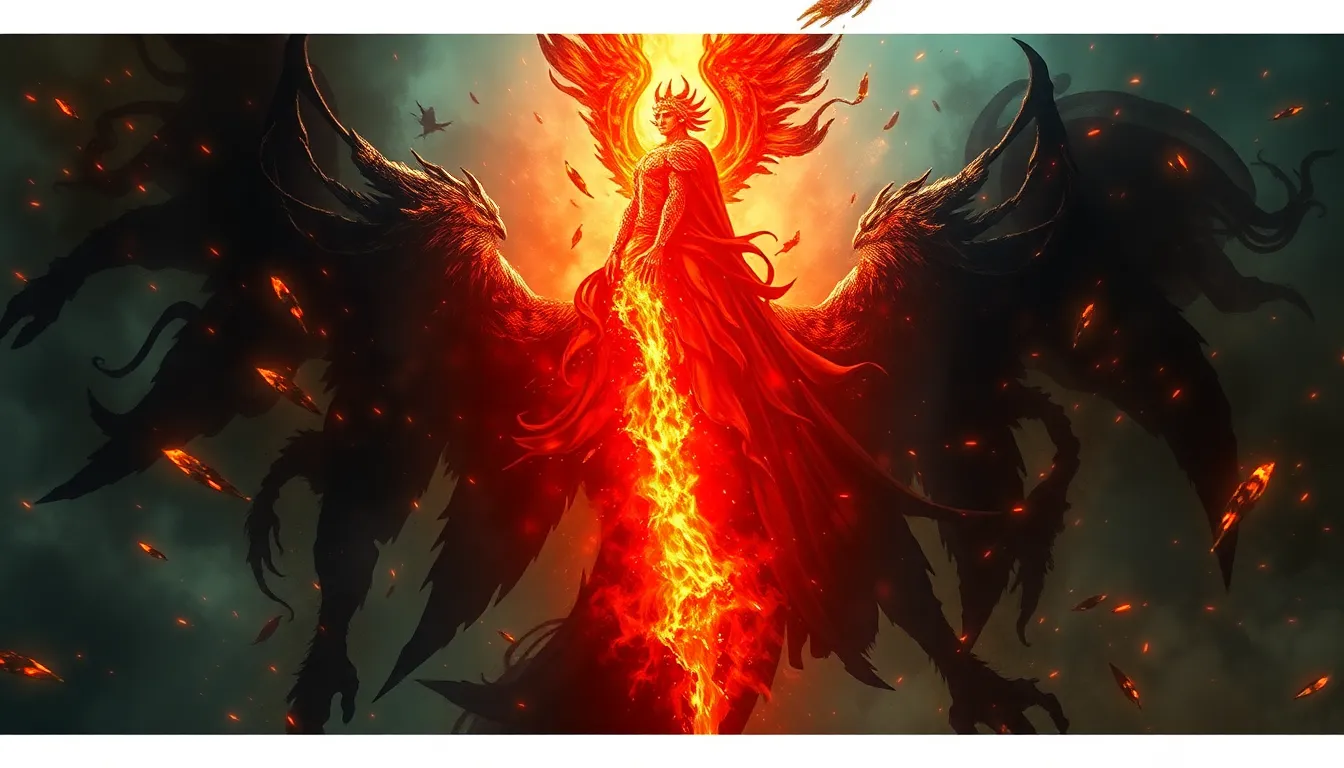The Hero’s Return: Myths of Homecoming and Redemption
1. Introduction
Homecoming and redemption are profound themes that resonate deeply within mythological contexts. Homecoming refers to the journey back to one’s origin, often laden with emotional and symbolic significance. Redemption, on the other hand, involves a transformative process through which an individual seeks atonement or recovery from past mistakes. These themes are crucial in literature and culture as they reflect the human experience of struggle, growth, and self-discovery.
This article will explore the intricacies of homecoming and redemption through various lenses, including archetypal analysis, comparative mythology, psychological perspectives, and their manifestations in modern literature and film. We will delve into the common challenges heroes face upon their return home and the importance of community in these narratives.
2. The Archetype of the Hero’s Journey
Joseph Campbell’s monomyth framework, often referred to as the “hero’s journey,” outlines a universal pattern that many heroes across cultures follow. This framework consists of several stages, some of which are particularly relevant to the themes of homecoming and redemption:
- Call to Adventure: The hero is summoned to leave their familiar world.
- Crossing the Threshold: The hero ventures into the unknown.
- Trials and Tests: The hero faces challenges that test their resolve.
- Return Home: After overcoming obstacles, the hero returns transformed.
Examples of heroes who embody this journey include:
- Odysseus: The clever Greek hero of “The Odyssey,” who faces numerous trials before returning to Ithaca.
- Aeneas: The Trojan hero in “The Aeneid” who embarks on a quest to found a new home in Italy.
- Frodo Baggins: The hobbit from “The Lord of the Rings,” who returns home after destroying the One Ring.
3. Mythical Homecomings: A Comparative Analysis
Homecoming is a central theme in many myths, often representing not just a physical return but a deeper emotional and spiritual reconciliation. In “The Odyssey,” Odysseus’s return is fraught with challenges, as he must reclaim his place in his household and society. Similarly, Aeneas’s journey is not only about finding a new homeland but also about fulfilling his destiny as a leader and a founder.
Cultural variations in the concept of homecoming exist, influenced by societal values and beliefs. For some cultures, home represents a physical space, while for others, it embodies a sense of identity and belonging. For instance:
- In Native American myths, home often symbolizes a connection to the land and ancestral roots.
- In many African traditions, homecoming can involve rituals that honor ancestors and affirm communal ties.
4. The Role of Redemption in Heroic Myths
Redemption is a key aspect of many heroic narratives, offering characters a chance to atone for their failures or misdeeds. This theme emphasizes the possibility of change and growth, suggesting that individuals are not defined solely by their past actions.
Notable characters seeking redemption include:
- Hercules: Tasked with completing twelve labors to atone for his past mistakes.
- King Arthur: In various retellings, Arthur seeks redemption for the consequences of his reign and personal choices.
Homecoming often intersects with redemption, as the hero’s return can signify an opportunity for reconciliation with oneself and others. This dual journey encapsulates the transformative power of facing one’s past.
5. Psychological Perspectives on Homecoming and Redemption
Carl Jung’s theories of archetypes and the collective unconscious provide a psychological lens through which we can understand the significance of homecoming and redemption. The return home can symbolize a journey towards self-realization and integration of different facets of the self.
The psychological significance of returning home includes:
- Reconnecting with one’s identity and heritage.
- Finding closure and healing from past traumas.
- Re-establishing relationships and community ties.
Redemption can be viewed as a therapeutic journey where individuals confront their past and seek to make amends, highlighting the importance of personal growth and transformation.
6. Homecoming in Modern Literature and Film
Contemporary works continue to explore the themes of homecoming and redemption, often reinterpreting classic myths for modern audiences. Some notable examples include:
- “The Lord of the Rings”: Frodo’s journey home is filled with trials that culminate in personal growth and a deeper understanding of his place in the world.
- “The Lion King”: Simba’s return to Pride Rock embodies themes of redemption as he confronts his past and reclaims his rightful place.
Modern narratives often blend traditional mythological elements with contemporary issues, making these themes relevant to today’s audiences. The impact of homecoming and redemption in popular culture underscores their enduring significance in the human experience.
7. The Symbolism of Home in Myths
The concept of home symbolizes safety, identity, and belonging across various myths. It serves as a backdrop against which the hero’s transformation occurs. Symbolic representations of home include:
- Physical spaces, such as houses or cities, that reflect cultural values.
- Emotional spaces, representing comfort and acceptance.
The duality of home, as both a physical and emotional space, highlights the complexities of the hero’s journey and the importance of returning to one’s roots.
8. Challenges and Obstacles in the Hero’s Return
Upon returning home, heroes often face significant challenges and obstacles. These can include:
- Alienation and disconnection from their former selves and communities.
- Resistance from family or society who may not understand their transformation.
- Internal struggles related to guilt and unresolved issues from their journey.
Myths such as “The Odyssey” illustrate these difficulties, as Odysseus must navigate not only external challenges but also his own feelings of isolation and change.
9. The Role of Community in Redemption Narratives
Community plays a vital role in the hero’s journey, particularly in redemption narratives. The support and acceptance of a community can facilitate the hero’s transformation and reintegration into society. Myths that emphasize collective redemption often depict:
- Tribal or family narratives where the community plays a crucial role in the hero’s return.
- Rituals and celebrations that mark the hero’s reintegration.
The interplay between individual and communal redemption highlights the interconnectedness of personal growth and social acceptance.
10. Conclusion
The themes of homecoming and redemption are fundamental to understanding the hero’s journey in myths across cultures. These narratives reflect the complexities of human experience, emphasizing the importance of personal transformation, community support, and the quest for belonging. Through the lens of mythology, we gain insights into our own struggles and aspirations, reminding us that the journey home is often as significant as the destination itself.




